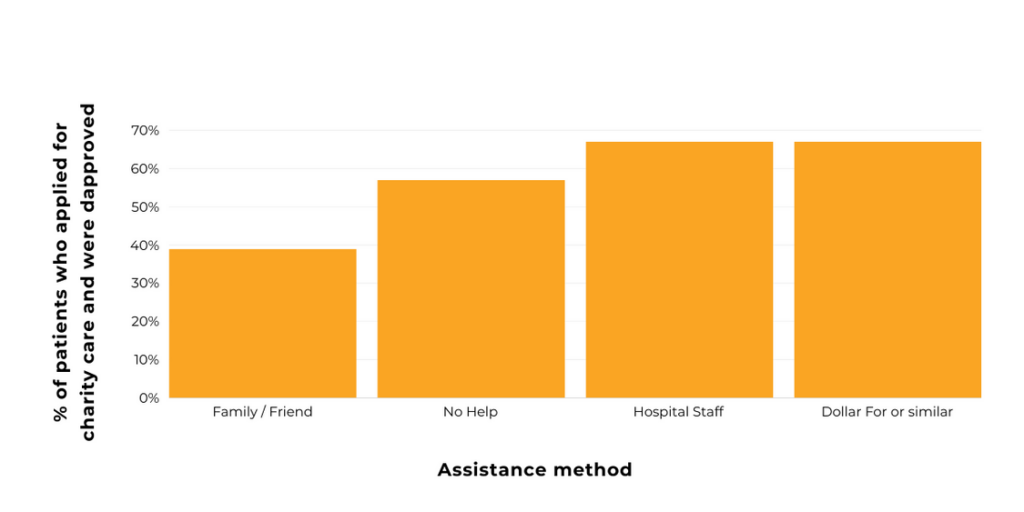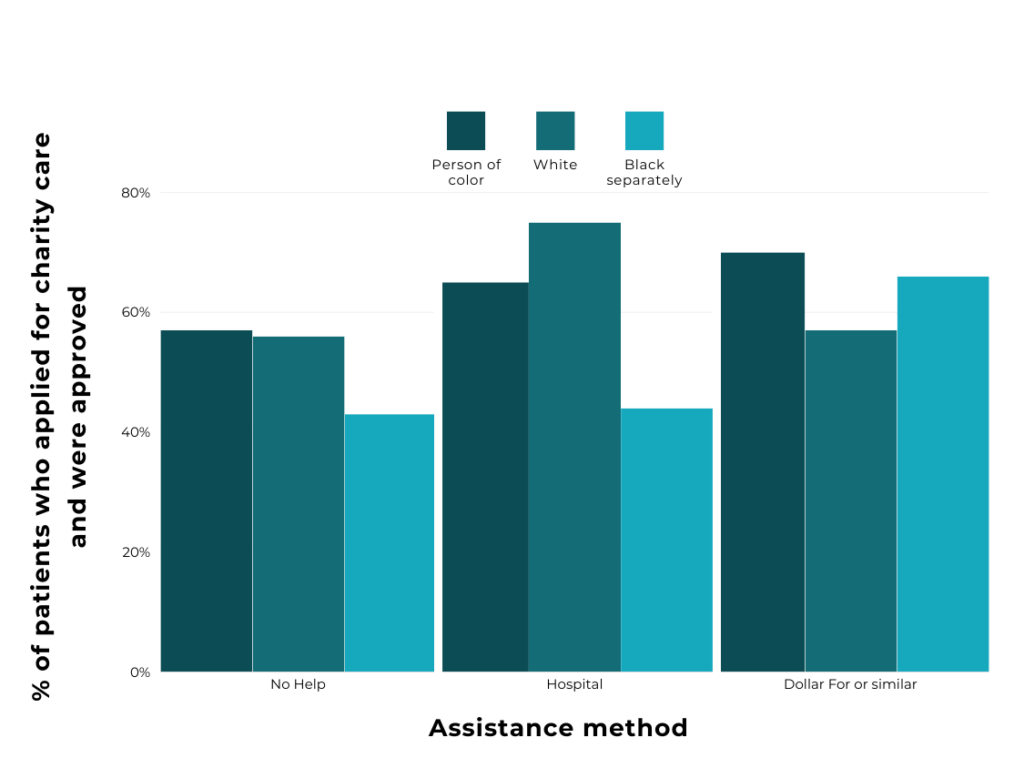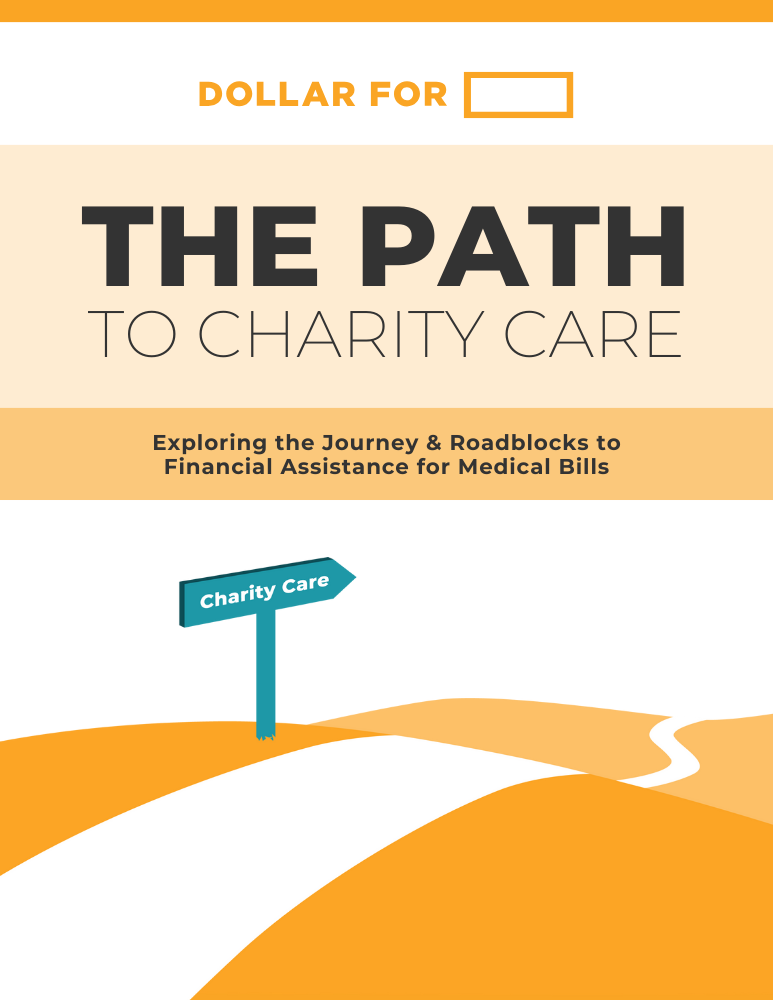We found that only 29% of patients with hospital bills they cannot afford are able to learn about, apply for, and receive charity care.
Overall, the data show that when people apply for charity care, they are generally successful in receiving debt reduction. However, most patients lack awareness of the programs, and support to help navigate the application process. Hospitals play a major role in determining awareness, access, and equitability.
Known
In order for charity care to be “known” to patients, they must both be aware of the program and decide to apply. Our research found that most patients are not receiving the education they need to “know” about hospital financial assistance programs.
- 51% of those who are potentially eligible do not apply for financial assistance.
- Most patients (52%) did not report receiving information about financial assistance from their hospital.
- Increased charity care education from the hospital increases application rates.
- Hospitals are more likely to speak with patients with higher bills about charity care.

Easy
In order for charity care to be “easy” to patients, they must be able to apply without a document burden through a simple medium, understand the process and where they are at in it, and be able to readily communicate with someone who is well-informed about the process. Our research found that many patients do not find the current process easy and the outcomes are much better if patients receive help from the hospital or an organization like Dollar For.
- Nearly a quarter of patients describe the application process as somewhat or very hard.
- Approval rates are highest (67%) when patients get help from Dollar For or the hospital directly.
- Many applicants (45%) don’t receive any assistance during the application process.
- 63% of applicants who receive help from Dollar For or a similar organization describe the process as easy.
- People of color receive more help applying for charity care (57%) than white patients (50%), and are more successful with applications when they get help from Dollar For or similar organizations.

Fair
In order for charity care to be “fair,” it needs to be available to all those who need it and equitably administered and distributed. Our research found that most people who need charity care do not receive it largely due to barriers around awareness and application ease, and that application outcomes vary greatly for different racial groups.
- Black patients have a 62% lower probability of being approved for charity care than all other races.
- The most common reasons applications are denied due to the age of the bill (28%) and paperwork issues (24%).
- Patients denied charity care typically either enter a payment plan or have their debt sent to a collections agency.
- Patients who receive charity care report meaningful additional health (94%) and financial (58%) benefits.


